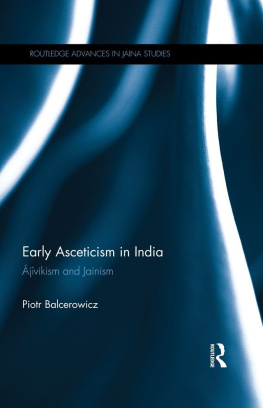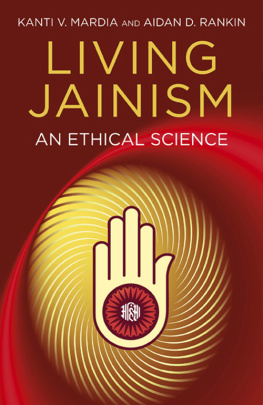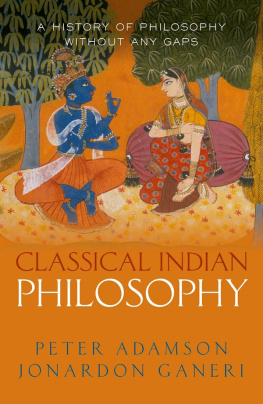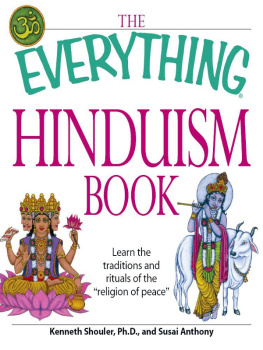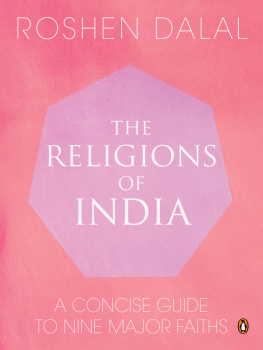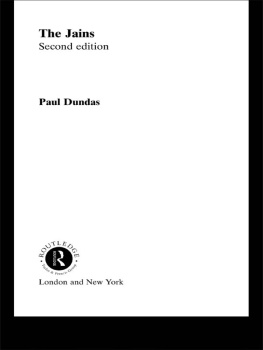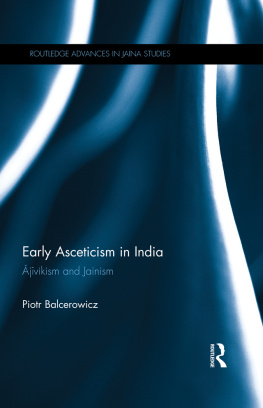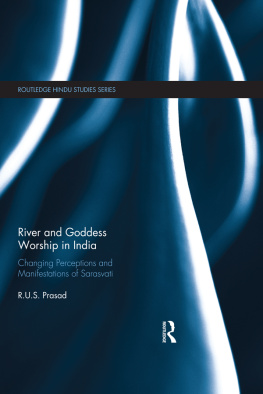Early Asceticism in India
jvikism was once ranked one of the most important religions in India between the 4th and 2nd centuries BCE, after Buddhism, Brahmanism and before Jainism, but is now a forgotten Indian religion. However, Jainism has remained an integral part of the religious landscape of South Asia, despite the common beginnings shared with jvikism.
By rediscovering, reconstructing, and examining the jvikism doctrine, its art, origins and development, this book provides new insight into jvikism, and discusses how this information enables us to better understand its impact on Jainism and its role in the development of Indian religion and philosophy. This book explains how, why and when Jainism developed its strikingly unique logic and epistemology and what historical and doctrinal factors prompted the ideas which later led to the formulation of the doctrine of multiplexity of reality ( aneknta-vda ). It also provides answers to difficult passages of Buddhist Smaa-phala-sutta that baffled both Buddhist commentators and modern researchers.
Offering clearer perspectives on the origins of Jainism the book will be an invaluable contribution to Jaina Studies, Asian Religion and Religious History.
Piotr Balcerowicz is Professor of Indian Philosophy and Oriental Studies (Indology) at the University of Warsaw, Poland. He specialises in philosophical traditions of Asia and the West, with emphasis on Indian epistemology and non-Brahmanic philosophical schools.
Routledge Advances in Jaina Studies
Series Editor: Peter Flgel, School of Oriental and African Studies
Jaina Studies have become an accepted part of the Study of Religion. This series provides a medium for regular scholarly exchange across disciplinary boundaries. It will include edited collection and monographs on Jainism.
1. STUDIES IN JAINA HISTORY AND CULTURE
Disputes and Dialogues
Edited by Peter Flgel
2. HISTORY, SCRIPTURE AND CONTROVERSY IN A MEDIEVAL JAIN SECT
Paul Dundas
3. THE HISTORY OF VEGETARIANISM AND COW-VENERATION IN INDIA
Ludwig Alsdorf Edited by W. Bolle
4. JAINA SCRIPTURES AND PHILOSOPHY
Edited by Peter Flgel & Olle Qvarnstrm
5. YOGA IN JAINISM
Edited by Christopher Key Chapple
6. EARLY ASCETICISM IN INDIA
jvikism and Jainism
Piotr Balcerowicz
Early Asceticism in India
jvikism and Jainism
Piotr Balcerowicz
First published 2016
by Routledge
2 Park Square, Milton Park, Abingdon, Oxon OX14 4RN
and by Routledge
711 Third Avenue, New York, NY 10017
Routledge is an imprint of the Taylor & Francis Group, an informa business
2016 Piotr Balcerowicz
All illustrations (maps, photographs, drawings) by
Piotr Balcerowicz, unless otherwise indicated
The right of piotr Balcerowicz to be identified as author of this work has been asserted by him in accordance with sections 77 and 78 of the Copyright, Designs and Patents Act 1988.
All rights reserved No part of this book may be reprinted or reproduced or utilised in any form or by any electronic, mechanical, or other means, now known or hereafter invented, including photocopying and recording, or in any information storage or retrieval system, without permission in writing from the publishers.
Trademark notice: Product or corporate names may be trademarks or registered trademarks, and are used only for identification and explanation without intent to infringe.
British Library Cataloguing in Publication Data
A catalogue record for this book is available from the British Library
Library of Congress Cataloging in Publication Data
A catalog record for this book has been requested
ISBN: 978-1-138-84713-2 (hbk)
ISBN: 978-1-315-72697-7 (ebk)
Typeset in Times New Roman / Sanskrit New Times
by Piotr Balcerowicz
Publisher's Note
This book has been prepared from camera-ready copy provided by the author.
To my Ania
Acknowledgements:
Research work on this book has been generously supported by the National Science Centre of Poland (Research Project: History of Classical Indian Philosophy: non-Brahmanic Schools, National Science Centre, 2011/01/B/HS1/04014)
Contents
Table
This book is a patchwork sewn together out of bits and pieces of extremely scanty material preserved in Prakrit, Pali and Sanskrit, in texts and inscriptions. The conclusions of the book should prompt us to seriously reconsider the beginnings of Jainism and jvikism, the relations between them in their earliest stages and the historical role these religious communities played more than two millennia ago. This reconstruction attempts to make a better sense of sparse textual, epigraphic and archaeological data, for the history of two religious traditions of South Asia is not a watertight argument based on indubitable solid evidence. Since it is quite unlikely that new textual evidence will ever be unearthed all we can do to explain away inconsistencies, incongruities and ambiguities of the traditional accounts of the beginnings and early development of Jainism and jvikism is to analyse the extant material, as scanty as it is, with more critical apparatus at hand in the hope that the textual accounts and inscriptions that have survived to this date will yield more information.
There is much in support of the claim that the beginnings of Jainism and jvikism, two ancient Indian religious traditions, have a lot in common, although the former has remained an integral part of the religious landscape of South Asia till today, whereas the jvikas are no longer present in general memory, except for stray specialists in South Asian religions. Indeed, the jvikas seem to have disappeared from South India as early as the fourteenth century, and there are indications that they had become non-existent in the North several centuries earlier.
Despite its importance for the history and development of Indian religions and philosophical thought, the beginnings of Jainism still remain shrouded in mystery. Our knowledge of the movement of the jvikas, once apparently so closely allied to the Jainas, is even more limited: we hardly have any knowledge of either their doctrine or their beginnings and subsequent development, even though it seems that jvikism was once much more influential and enjoyed more extensive political support than Jainism. It may even be argued that the architecture of jvikan caves influenced the standard model of earliest Buddhist cave temples and Jaina caves.
However, in the first centuries after the emergence of the three important South Asian religionsBuddhism, Jainism and the jvikasi.e. in the period to the 2nd/1st centuries BCE, the jvikas apparently enjoyed higher general popularity, political support, and the royal patronage and respect of the king Aoka and of some of his successors (as well as of post-Mauryan politologists who flourished under a collective name of Kauilya) than their rivals, the Jainas, as early textual sources and historical data would give evidence to.
The followers of jvikism are mentioned in four Aokan edicts, i.e. in three inscriptions from the Barbr Hills in Bihr ( vide infra , 19), where all four caves had been donated by Aoka to the jvikas, as well as in Aokas seventh pillar edict from Topr in Hary, presently at Firoz Shh Kol in Delhi, There is no single epigraphic mention of Jainism until the middle of the second century BCE.

